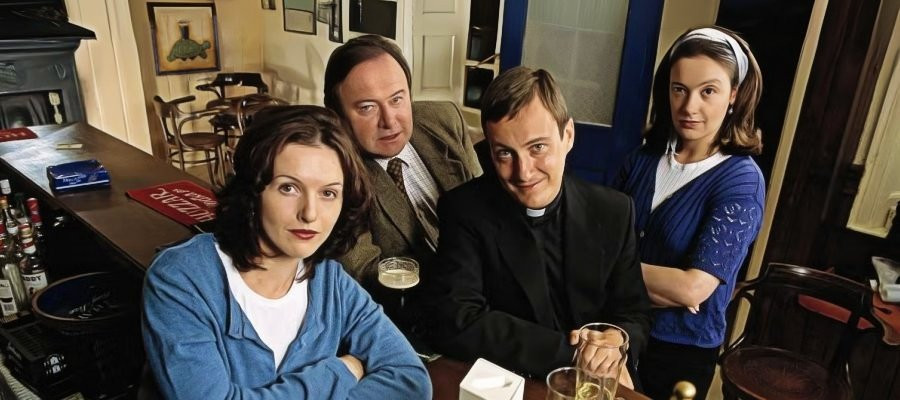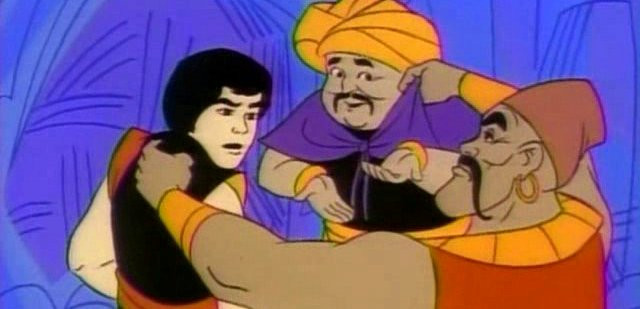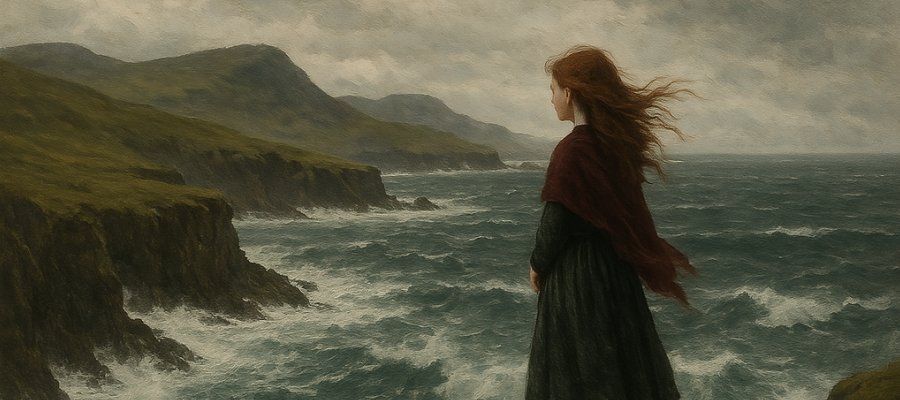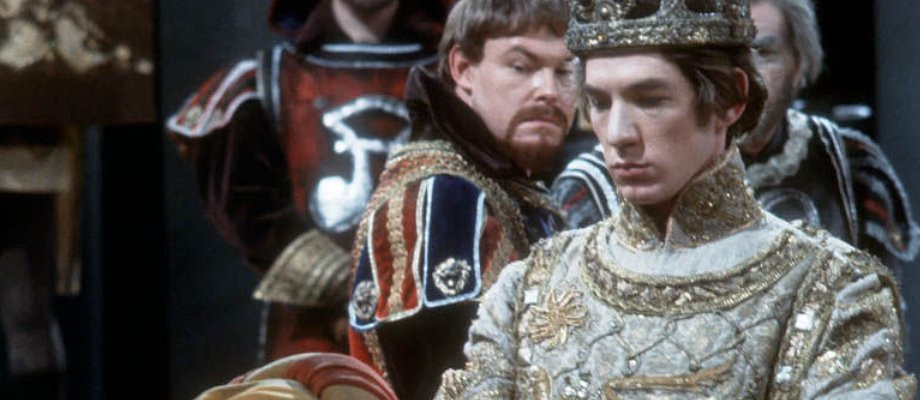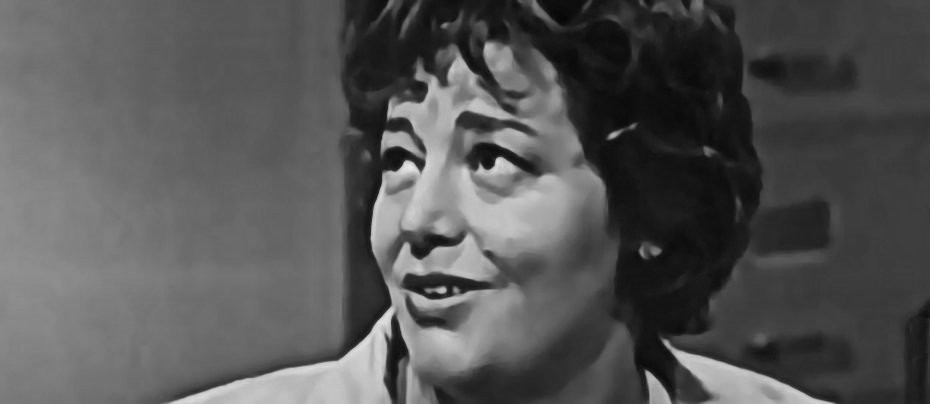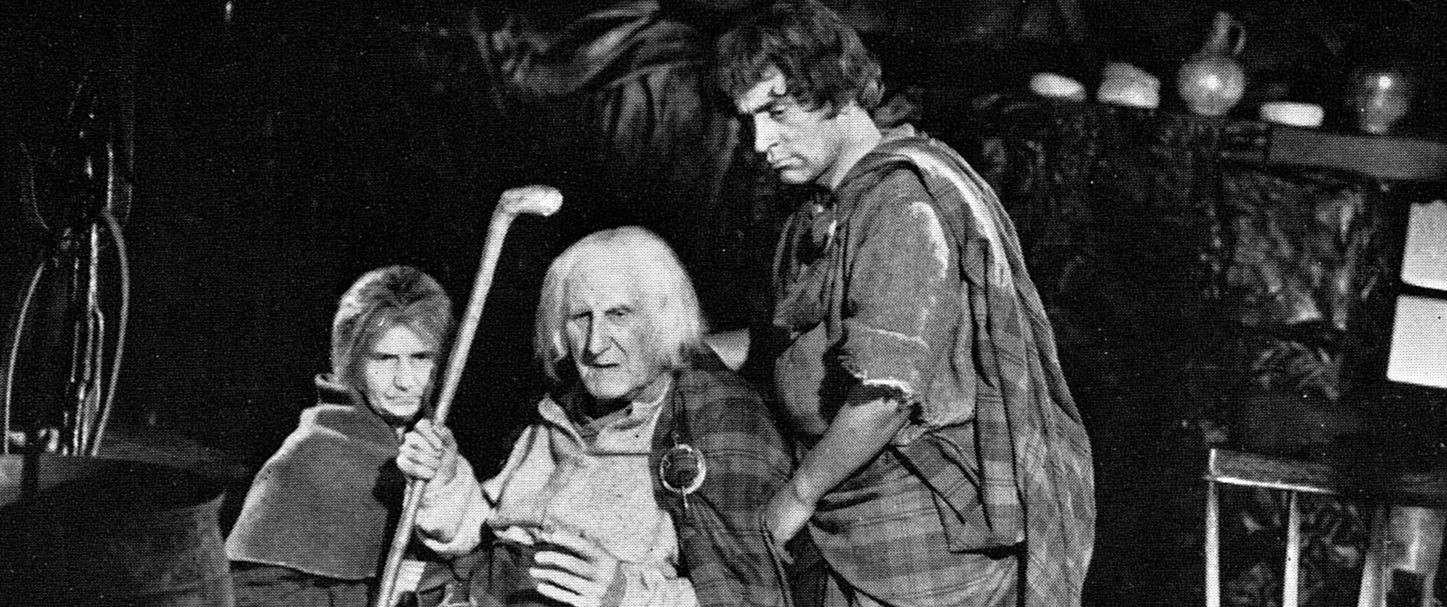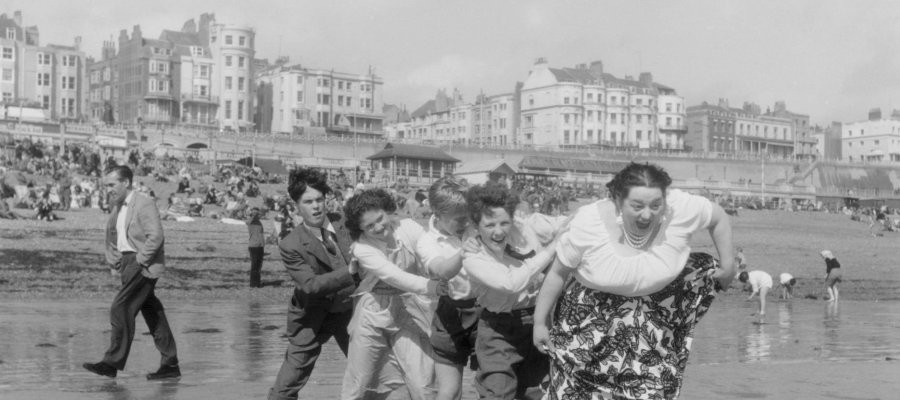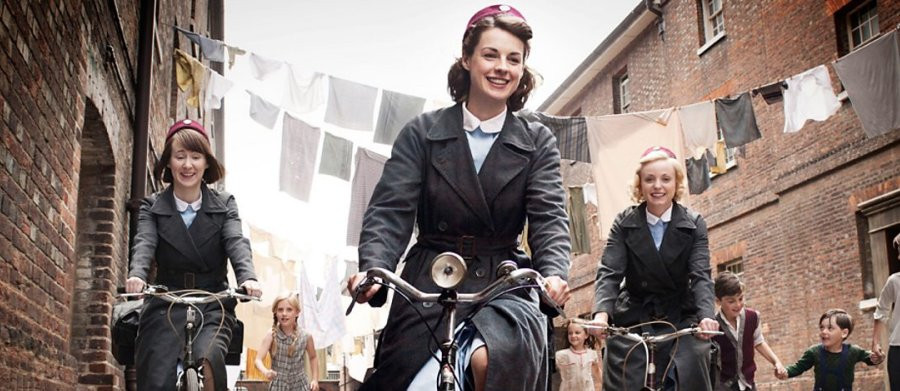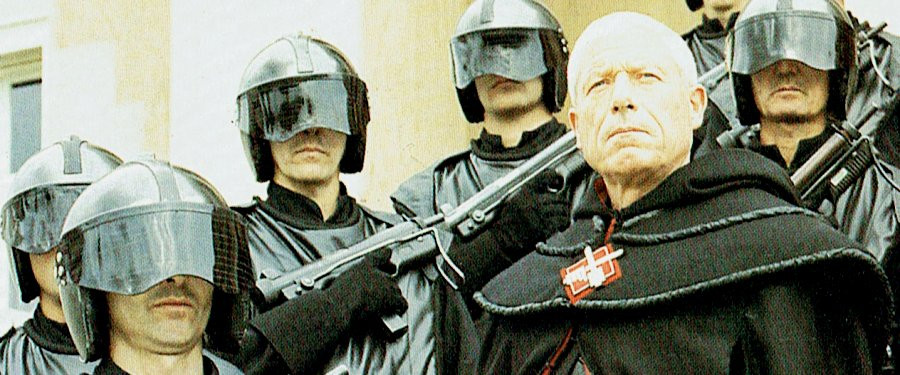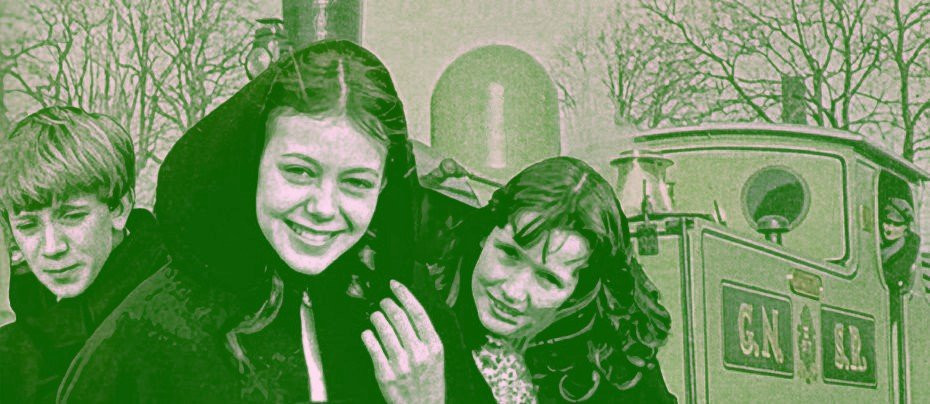
The Railway Children
1968 - United KingdomReview: Laurence Marcus
A timeless tale that chugs its way into our hearts, The Railway Children, a touching adventure created by Edith Nesbit and first published in 1905, has made its way to screens big and small, echoing through time like the distant whistle of a passing train.
The story begins in Edwardian London, where the Waterbury family resides in a happy, upper middle-class home. Charles Waterbury, the father, works at the Foreign Office, and their life is relatively affluent. The children—Roberta (Bobbie), Phyllis, and Peter—enjoy the warmth of their parents’ presence and the comfort of their surroundings. But on Christmas evening 1904, everything changes. Charles is abruptly taken away by two strangers, leaving the family bewildered and heartbroken. His absence shatters their idyllic existence.
At the heart of the story lies a secret—a quiet, unspoken truth—that binds the characters together. Bobbie’s father has been falsely accused of spying, and her mother bears this burden silently. With their father gone and their finances dwindling, the Waterburys move to a drafty house called Three Chimneys in rural Yorkshire, near a railway line. The contrast from their previous life is stark, but they find solace in their new surroundings. The railway becomes their lifeline. The children—curious, resilient—befriend (Albert) Perks the Porter, and wave to passengers passing by. Adventures unfold as they explore the tracks, the nearby tunnel, and the trains. Their days are no longer mundane; instead, they’re filled with excitement and discovery.
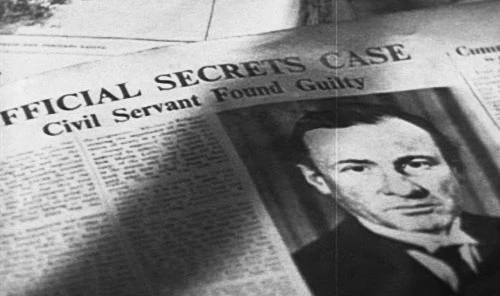
Yet, the central question remains: What happened to Father? Bobbie, Phyllis, and Peter yearn for answers. Their vigilance along the railway isn’t just about trains; it’s about hope—hope that one day, their father will step off a train and back into their lives.
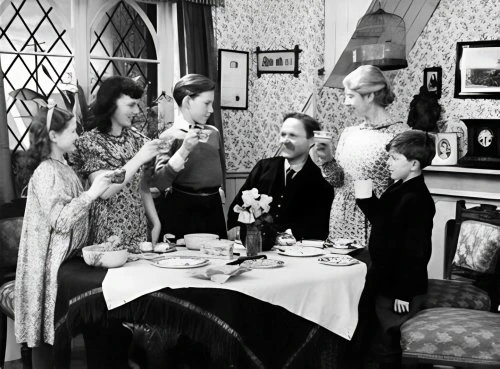
The Novel was originally adapted for radio in 1943 and first adapted for BBC television in February 1951 by Dorothea Brooking. It was only the second serial to be presented on Children's Television and starred Jean Anderson (Tenko) as Mother, Carole Lorimer (Moonstrike) as Phyllis, Michael Croudson (The Passing Show) and Marian Chapman (Probation Officer) as Roberta. The story was presented in 8 parts and proved popular enough to return to the screens later that year in a 4-part adaptation featuring the same actors in the principal roles. With no telerecordings in those early days of TV, only photographic reference exists.
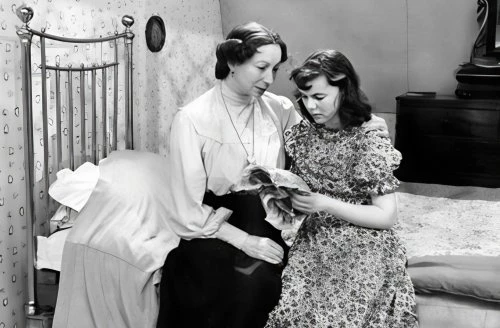
In 1957, a third adaptation appeared on the BBC. Writing in the Radio Times, Dorothea Brooking, whose adaptation was again used, told readers that 'almost a new generation of children has grown up apart from the countless families who were not able to see television in those days. So it seems the right moment to produce it again. Jean Anderson returned once more to play Mother but the children were now played by Sandra Michaels (The Thompson Family) as Phyllis, Cavan Kendall (Blood Money, Sexy Beast) as Peter and Anneke Wills (Doctor Who), who was still billed under her family name of Willys, as Roberta.
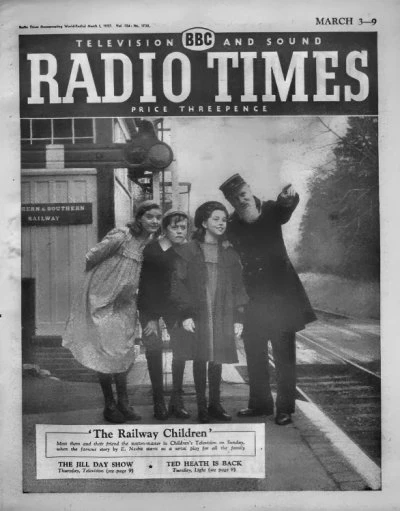
Brooking wrote that filming in 1957 for the period of 1906 meant finding a station and a bit of line that was not electrified. 'After walking on remote bits of line in the home counties and consulting ordinance maps, we found a country station and a line that winds through a tunnel between high wooded hills.' The next difficulty to overcome was that modern trains were using this line. However, with the cooperation of British Railways they got the shots they wanted, hopefully without incurring the wrath of 'keen trainspotters.'
In 1968, Campbell Logan stepped into the producer's shoes for a third, and probably the best remembered television adaptation. Denis Constanduros adapted the book and Julia Smith (EastEnders, The District Nurse, Angels) directed. Mother was played by Ann Castle (Coronation Street, Kavanagh QC), Phyllis was played by Gillian Bailey (Together), Peter was played by Neil McDermott and Roberta was played by Jenny Agutter (Call the Midwife).
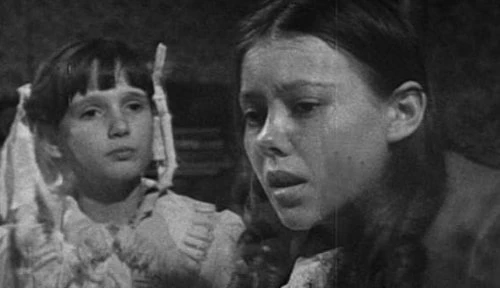
Unlike a hurried express train, this adaptation, like the original 1951 version, takes its time. With seven episodes, it allows the story to unfold at a leisurely pace. We get to linger by the railway tracks, wave at passing trains, and soak in the Yorkshire countryside. More screen time means more of Nesbit’s novel adapted—a treat for fans of the original story.
This series isn’t just about the story; it’s a showcase for live TV production, even though it wasn’t actually broadcast live (the budget constraints meant the cast were under pressure to perform almost as live with the fewest of retakes possible). The imperfections—the grainy visuals, the occasional wobbly set—add to its nostalgic appeal. It’s like peeking into a time capsule, where the magic happens right before your eyes.
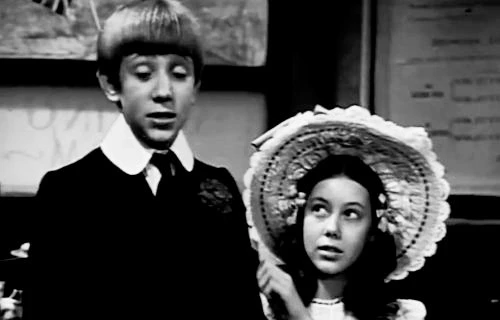
Jenny Agutter, with her wide-eyed wonder and grace, is the beating heart of this adaptation. Her portrayal of Roberta captures the essence of a girl caught between longing and resilience. Gillian Bailey's performance adds depth to the trio of siblings, and her interactions with the old gentleman on the 9:15 train are heartwarming. Neil McDermott's wide-eyed wonder and adventurous spirit is endearing, and Gordon Gostelow brought the station porter to life. Perks, with his pompous yet kind demeanour, became a friend to the children and a key player in their quest to uncover the truth about their father. A delightful ensemble of other talented actors filled out the world of The Railway Children, including John Ringham as Dr. Forrest, Joseph O’Conor as the Old Gentleman, and Frederick Treves as Father.
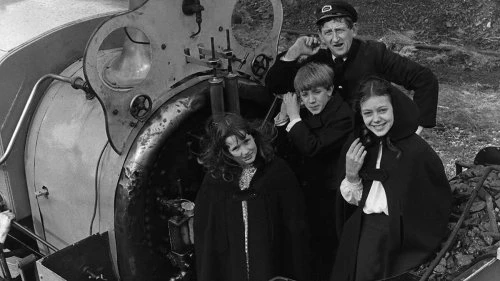
Extensive filming took place at Oakworth Station, a real-life gem nestled in Yorkshire on the Keighley & Worth Valley Railway. The train used was dubbed the Green Dragon by the children in the story. In real life it was called Joem, built in 1951 from a design dating back as far as 1895. Mytholmes Tunnel, near Haworth was utilised and Bents Farm (Three Chimneys) a picturesque farmhouse which became the heart of the series, stood proudly in Oxenhope, nestled against the Yorkshire hills. The doctor’s house, where the Waterbury family seeks help, was none other than the Brontë Parsonage Museum on Church Street in Haworth. The Brontë sisters—Charlotte, Emily, and Anne—wove their own literary magic in this very village.
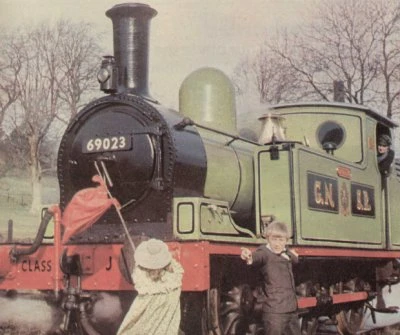
The following year, Lionel Jeffries took out a six-month option on the film rights for £300 and wrote a screenplay. Jeffries read the book for the first time when he was returning to Britain by ship from the US to film Chitty Chitty Bang Bang, in which he appeared as father to Dick Van Dyke’s Caractacus Potts. He had lost his own books and borrowed The Railway Children from his 13-year-old daughter Martha. Inspired by the BBC's 1968 adaptation, Jeffries used the Keighley and Worth Valley Railway as the backdrop for the film, referring to it as in the original story as the 'Great Northern and Southern Railway.'
Jenny Agutter was again cast as Roberta but Sally Thomsett (Man About the House) and Garry Warren (Catweazle) played her siblings. Bernard Cribbins, William Mervyn and Iain Cuthbertson also starred, and Mother was played by veteran actor Dinah Sheridan. It was the ninth most popular film at the British box office in 1971 and received three nominations for awards at the 24th British Academy Film Awards ceremony. In 2022 a sequel, The Railway Children Return was released. Set in 1944, this time Jenny Agutter took on the role of Mother.
The 1970 film version is etched in our collective memory, but the 1968 version is equally deserving of praise. Critic Ann Purser writing in The Stage in May 1968 had been complaining about the lack of original children's television but was impressed enough to observe, 'when adaptations are as good as this one, I am not complaining. Denis Costanduros has dramatised this classic story and the clarity and simplicity are a delight.' She went on to write, 'When children are as real as these three, who in spite of their funny clothes, quarrel and argue like any other family, the identifying process is complete.' The Daily Record said it was a series that 'captures the attention from start to finish.'
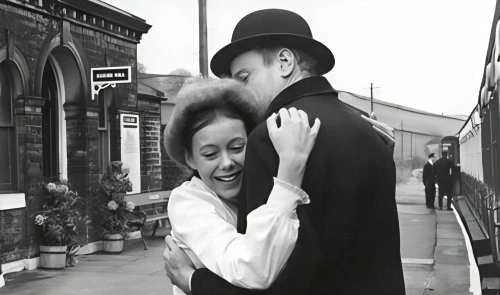
The setting may be Edwardian England, but the emotions are universal. The longing for family, the thrill of adventure, the resilience of children—it all transcends time and place. Successive generations have climbed aboard this literary locomotive because it speaks to our shared humanity—the messy, hopeful, secret-laden parts of it. And as long as there are hearts yearning for connection and miracles, The Railway Children will keep steaming along, pulling us into its embrace.
Seen this show? How do you rate it?
Seen this show? How do you rate it?
Published on October 3rd, 2024. Written by Laurence Marcus for Television Heaven.


